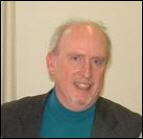
HUU Sermon Archives
Observations On Happiness
By J. Barkley Rosser, Jr.
January 22, 2006
 The
Declaration of Independence begins with a paean to the pursuit of “life, liberty,
and the pursuit of happiness.” At about the same time the British philosopher, Jeremy
Bentham, argued that society should be organized so as that the largest number of
people can achieve the greatest amount of pleasure or satisfaction or happiness,
which he labeled “utility.” Natural law philosophers and theologians denounced this
view as a pernicious doctrine. People should do what is right or moral and not just
what feels good at the moment. However, this “utilitarianism” became the foundation
of much of modern economics and politics, “the greatest good for the greatest number.”
The
Declaration of Independence begins with a paean to the pursuit of “life, liberty,
and the pursuit of happiness.” At about the same time the British philosopher, Jeremy
Bentham, argued that society should be organized so as that the largest number of
people can achieve the greatest amount of pleasure or satisfaction or happiness,
which he labeled “utility.” Natural law philosophers and theologians denounced this
view as a pernicious doctrine. People should do what is right or moral and not just
what feels good at the moment. However, this “utilitarianism” became the foundation
of much of modern economics and politics, “the greatest good for the greatest number.”
In recent years psychologists, economists, and other social scientists have intensively studied what makes people happy. These studies are based on peoples’ own reports of their degrees of happiness (e.g. “rate how happy you are on a scale of one to ten,” admittedly rather crude). Such studies are not good at dealing with the deeper aspects of this, the problem of inner spiritual peace. Care should be taken in comparing across nations and cultures the results from such studies as well (some cultures approve of proclaiming one’s happiness, while others value whining). Nevertheless, these studies do suggest things we would expect, that happiness is most fundamentally tied to relations with people close to one, friends, family, and the immediate community.
Certainly the question of economic well-being and happiness is one that has been much studied. By now we know much about this. The stylized fact is that within a society at any given time, generally better off people report themselves to be happier than those who are less well off. However, over time, as a society as a whole becomes better off economically, there does not seem to be much increase in reported happiness. This result, known as the “income-happiness paradox,” was first reported about 30 years ago by Richard Easterlin. Indeed, in the US, reported happiness appears to have peaked in 1956 and to have been gradually drifting downwards ever since, with some scattered upward blips. Perhaps that peak is associated with the fact that 1957 was the year of maximum births in US history, and the anticipation and optimism, after two decades of depression and war by expectant baby boomer families, was responsible.
More generally it seems that above some low level of income it is other things that are more responsible for happiness, relations with other people and deeper matters, although obvious social catastrophes such as war or serious political repression can be important. The economic studies ultimately show the limits of economic sources of happiness. However, given that people compare themselves with others, there is evidence that increased degrees of income and wealth inequality may contribute to broader social unhappiness as more people feel left behind the super rich. When one’s neighbor builds a McMansion, one may feel suddenly dissatisfied with one’s own home.
Most individuals seem to have a general level of happiness to which they return after unexpected events make them either happier or less happy. Winning the lottery or having a spouse die will push one away from one’s normal level, but studies show that after a period of time, most people will return to their normal level, more or less. For most their level of happiness is based on what they expect to be their normal life, their standard of reference, which usually depends on some comparison with others. However, if their life suddenly changes, they will usually adjust their expected level to that after some time passes. Of course there are some who fail to do so, and we know that some people move into longer periods of depression that may become hard to overcome.
Another sign that expected levels of satisfaction and interpersonal relations are more important than absolute income levels can be seen by looking at the age pattern of reported happiness. On average, people are happier at 25 and 70 than at 45, although they usually have a higher income at 45 than at either of the other two. A widespread observation is that people tend to be less happy when they have adolescents at home, which is more likely at 45 than at the other two ages. People expect to make more at that age and so do not feel “better off” in some fundamental sense than at the other ages.
An important issue in all this is the degree to which people are able to understand what it is that brings them happiness. Although many people think that “economic rationality” implies a nearly mindless pursuit of material gain a la Scrooge in The Christmas Carol, the real meaning of this concept is that people understand truly what makes them happy and pursue it in a consistent and reasonable way. As Dickens understood, for most people that is not usually just a mindless material pursuit and does involve caring about others and helping them to some degree.
Studies by the Nobel-Prize-winning psychologist, Daniel Kahneman, have shown that people do not remember accurately their own past experiences and feelings. They are subject to what he calls the “peak-end” rule, that people tend to remember the most intense moment of an experience and how it ended. If these differ from the general pattern or length of the experience, they may misremember how they actually felt throughout the experience for the greater part of it. There are many other anomalies and misperceptions that people experience that can lead them sometimes to do things they later regret. Pleasure or happiness today may not lead to the same tomorrow or later.
Kahneman and a group of his associates have carried out detailed studies based on moment-by-moment reports from a group of about 500 women in Ohio of what makes them happy at given moments of time and what does not. Among normal experiences, making love tops the list. At the bottom is commuting while alone. Spending time with friends tends to beat out spending time with a spouse, which in turn dominates spending time with children, despite all the propaganda we hear to the contrary. The only person these women would rather not be with than being alone is with their boss. These studies suggest that there may be important and simple ways to reduce general social unhappiness, such as encouraging people to commute with friends.
It is also worth noting that these studies focus more on moods of the moment. The theory of utility has generally assumed that the accumulation of these moments is what leads to more general happiness or satisfaction, but this may not be the case. That may be due to the problem of people not remembering accurately or fully their own past experiences. In any case, there is apparently a disjuncture, or at least lack of relation, between momentary moods that people experience and their broader feelings of happiness or satisfaction, which are also not necessarily identical, although generally strongly correlated. As noted previously, reported general happiness or satisfaction does seem correlated with one’s socioeconomic position in society, however, this seems to have no relation at all with reported moment-to-moment reported happiness.
We conclude by reminding that these studies point out the limits of such things as material pursuits for achieving true happiness. These are not completely unimportant, but relations with others are more important. And ultimately, relations with others depend on one’s relation with oneself and with the deepest sources of one’s being.
The Voice Behind the Mask of Time’s Sorrow (Reading)
We seek in silence the author of the voice.
Incalculable, she sings in silence.
Where was this time?
When was this mask?
That’s right, we idle about,
Pretending we did not cry when we heard,
The voice that cannot be heard,
The weeping behing the depths of time.
We never will know, we never can know,
How it was before time’s sorrow wore a mask,
How excruciating, how unbelievable,
We know nothing, and we speak of nothing.
The nothing that we all are,
Everywhere, nothing but nothing,
It is almost annoying,
But we continue to pretend.
Yes, that is the way it is,
A whole lotta nothing,
The big echo of the big nothing behind the voice.
Right, we already knew this.
But where was that?
Was it when the mask slipped off?
Did we see the voice?
Did we laugh at her sorrow?
No, no, things are not so simple,
We shall not get away pretending we know nothing.
The inexcusable step out of time,
The unforgivable turning away from the mask.
Nothing we can do, and the nothing that we are,
All pretend to weep as the voice retreats, no time is left to weep,
Neither with a mask or with the nothing that is,
We cannot cry enough to fill time’s sorrow.
Read more sermons or talks by Barkley Rosser.
Return to Sermon Archives
For the latest sermons and events at HUU, visit our Community Cafe.
Inclement
Weather Policy
Worship
Service Materials
Curret Newsletter


UUs on YouTube
Our denomination has an official presence on YouTube! The Unitarian Universalist Association's YouTube site includes several videos and lots of interesting commentary.
Harrisonburg Unitarian Universalists 4101 Rawley Pike | Harrisonburg,
VA 22801
Mailing Address: | PO Box 96 | Harrisonburg, VA 22803
office@huuweb.org
| (540) 867-0073 | Webmaster
HUU is a member of the Southern
Region of the Unitarian Universalist
Association
Copyright © 2001 - 2025 Harrisonburg Unitarian Universalists - All Rights Reserved
Privacy Policy &
Disclaimer
Site Design & Maintainence : Expression
Web Tutorials & Templates


